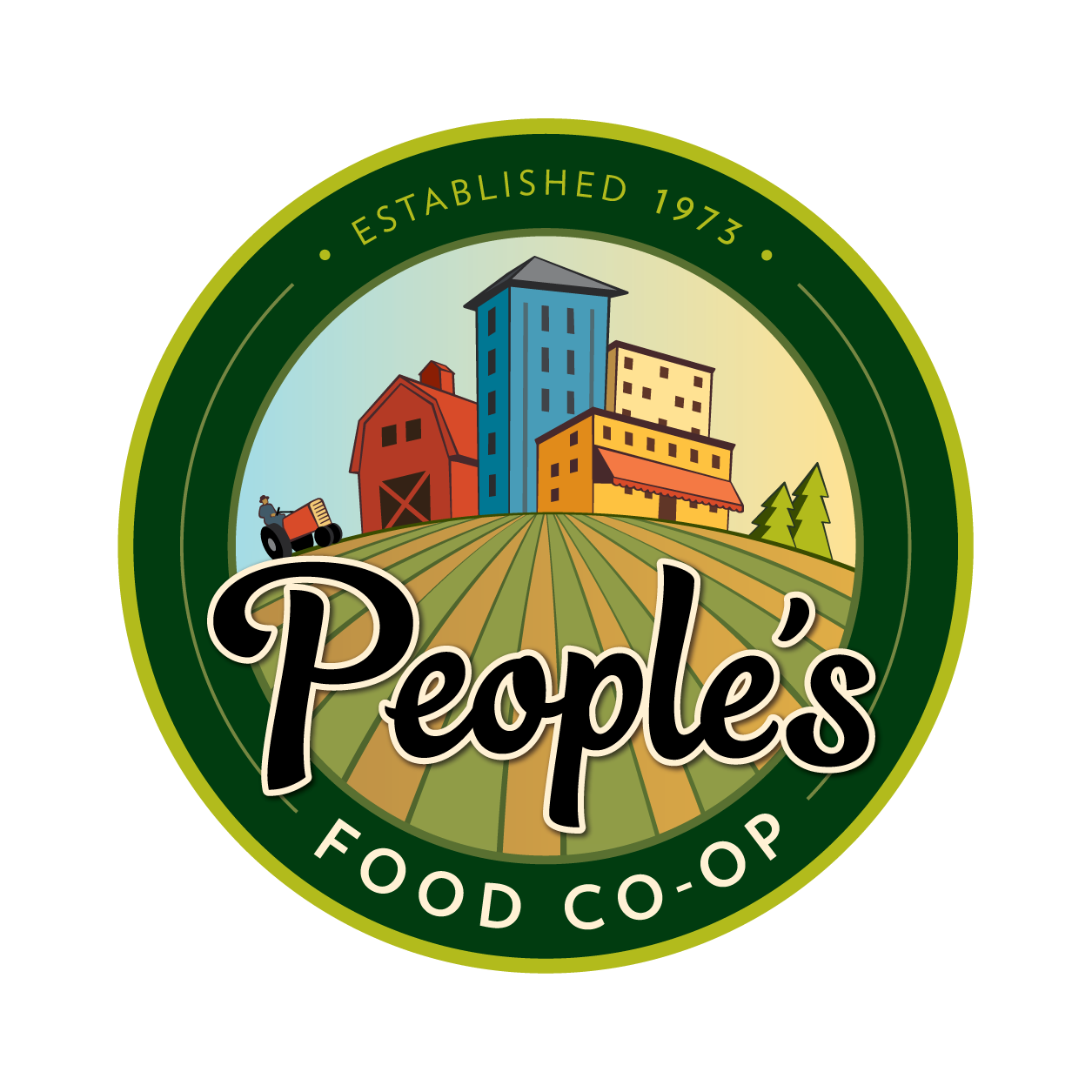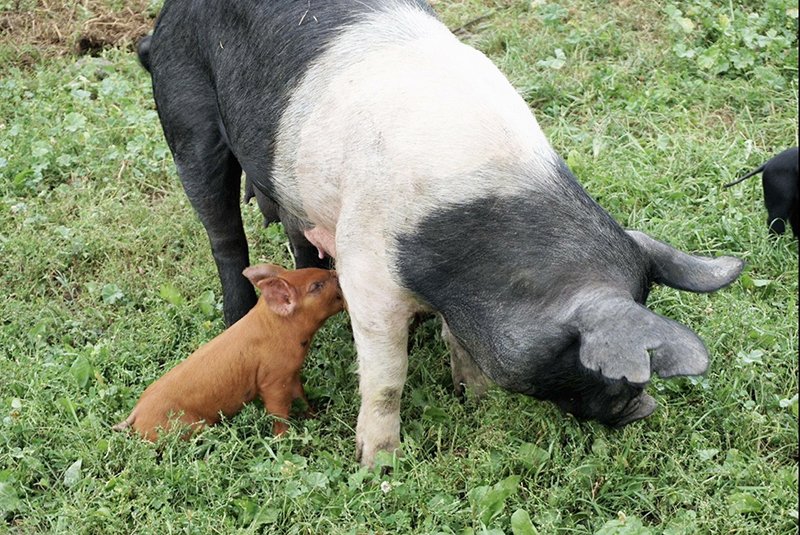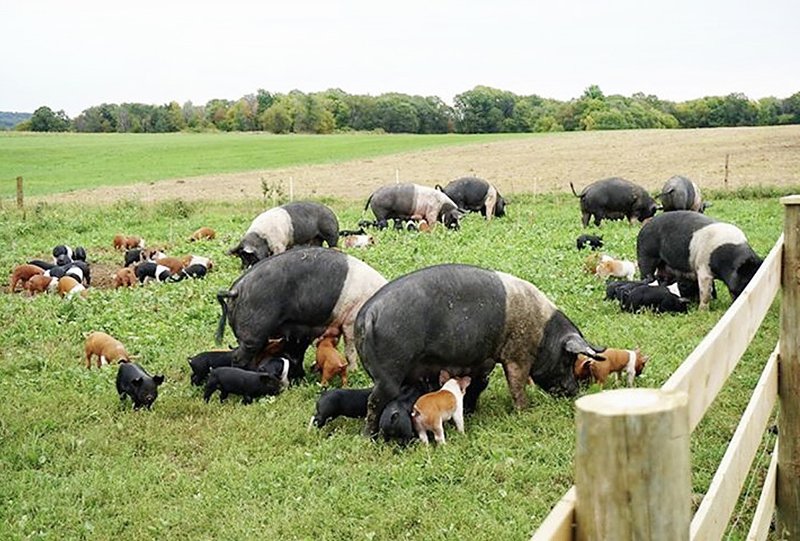Deutsch Family Farm
Location: Osseo, WI
69 miles from PFC—La Crosse
Supplier to PFC—La Crosse since 2008
Deutsch Family Farm outside of Osseo, Wisconsin has been in business since the mid-2000s. Alison and her husband, Jim, were city people who had wanted to farm for years. He was a machinist and Alison worked for a local natural gas company in Rochester. Alison’s grandparents had been farmers, though, and she studied horticulture in college. A farm had been a dream of theirs for many years when they decided to make the move and start the farm in 2006.
Alison Deutsch and her daughter, Lily, recently stopped into People’s Food Co-op to talk about their farm. Lily is 13 years old, and pitched in on the interview, correcting her mom when she got a name or fact not quite right. Alison and Jim have two kids, Lou and Lily.
PFC was their first customer. The co-op has been buying from the Deutsch family since 2008. The farm had built up a good number of restaurant customers, but that business was wiped out during the pandemic. They’ve made up the lost sales through website, direct-to-customer sales. Alison reports that they now do 70% of their business through online sales.
Deutsch Family farm specializes in pasture-raised pork. PFC uses their pork in all the co-op’s sausages and brats. The co-op also sells the farm’s pork sirloin and chops. All the pigs are raised on the family farm and are butchered at Burt’s in Eyota, Minnesota. The loss of small family farms and growth of large, feedlot, corporate farms have led to a corresponding decrease in the number of places a small farmer can butcher an animal. The Deutsch farm is happy to have a processing facility still within driving distance of their farm.
They have a three-sided barn with six pens. The animals have access to the outside and corn stalks and straw for bedding. The barn is cool in summer and warm in the winter. They’ve had little issue with illness in their herd and other than a shot of extra iron supplement for the baby pigs, Deutsch does not use sub-therapeutic drugs. “Sunlight is really good for them,” Alison says.
Deutsch Family Farmers Lily and Alison Deutsch at PFC.
It’s the economics
“We are a certified organic farm, but do not certify the pigs,” Alison says. The economics don’t work out. There’s too much factory farmed cheap product out in the market right now for a small farm to compete. “Other, larger organic producers have tried for years to meet the ‘cheap pork’ price without success,” Alison says. Buying organic feed to meet organic standards would make Deutsch Farm’s product prohibitively expensive.
They tried growing produce for a few years when they first started out. They grew winter squash for Organic Valley, before deciding to focus on raising animals. They still grow crops for the pigs to eat and keep land in pasture. Some farmers I’ve spoken to have said that animals are easier than growing vegetables. “If they were easy, everyone would have them,” Alison replies. “You can’t treat them like other animals, you have to work with them. Cows are like toddlers; pigs are functioning teenagers.”
I asked if they grow attached to any of their animals over time. Lily replies that they have some cows they like, no names but you remember their numbers. They have only 35 dairy cows but raise 300 to 400 pigs a year.
Pandemic story
Although the pandemic has been a difficult time for them, Alison notes that Deutsch Family Farm stepped up and worked hard to keep the co-op supplied with meat during the time when the big corporate farms were shutting down with Covid cases and supply issues. “We delivered every week through the worst of the pandemic,” Alison says. It’s an illustration of the importance of local farms and the dangers of relying on just a few big corporations to supply our food. According to recent data from the USDA, just four companies control 85% of the U.S. beef and 65% of pork production. For consumers concerned about the quality of their food and the quality of the lives of the animals who supply that food—to say nothing of the conditions of the humans who work in the industrial-scale slaughterhouses—they should support local businesses such as Deutsch Family Farm.
Look for Deutsch Family Farm products in PFC—La Crosse’s meat case. Shoppers are fortunate to have a selection of sausages made in-house from Deutsch’s pork as well as select cuts.



